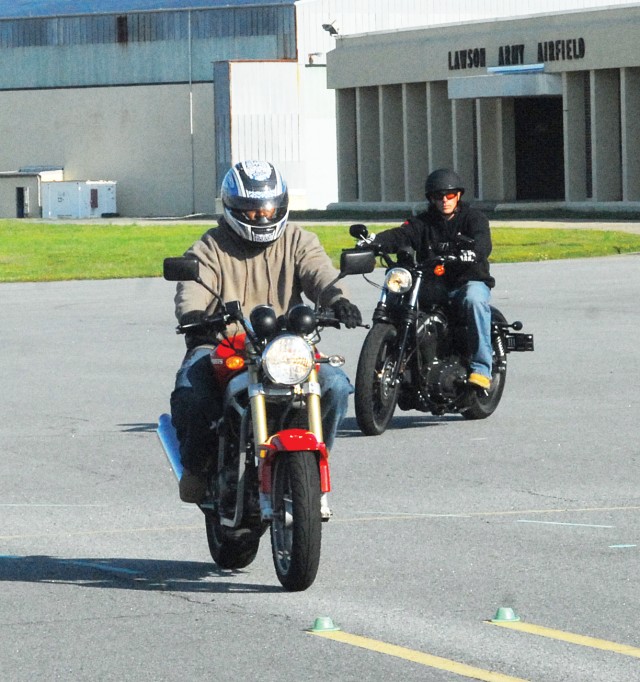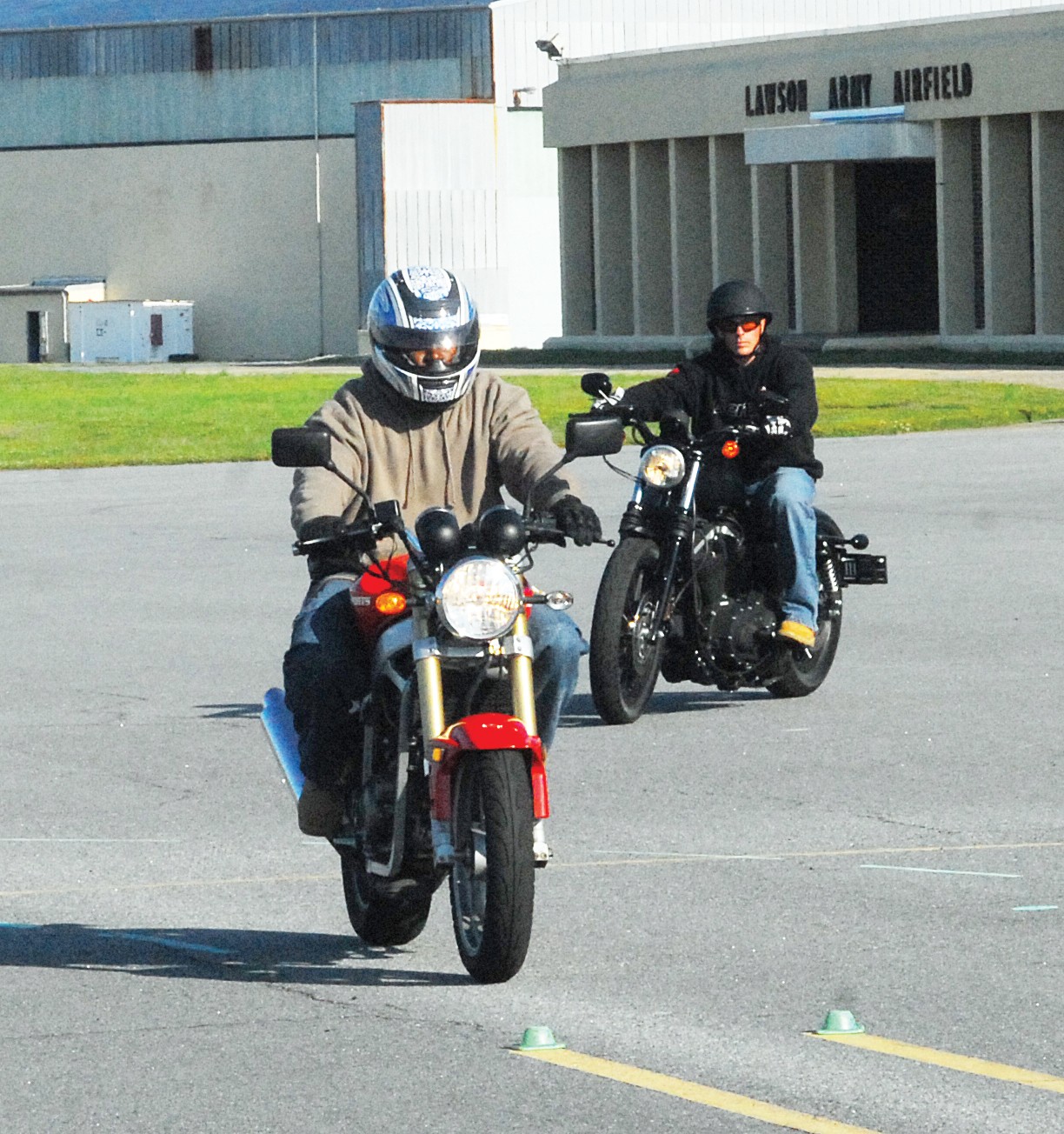Fort Benning's motorcycle policy has changed. All Soldiers who ride motorcycles must have their chain of command's approval and complete a motorcycle safety course on post.
Soldiers must have personal protective equipment for riding, registration for their motorcycle on post and in the state, a valid state operators license, insurance and the completed course, said David Larose, safety manager at the Fort Benning Safety Office.
"This is a requirement for Soldiers to operate a motorcycle, period - on or off post, on or off duty," he said. "It's part of force protection. The number of motorcycle fatalities has increased, and the Army is doing everything they can to ensure the safety of our Soldiers."
The two-day military basic riders course is offered twice weekly. Using both hands-on training and classroom work, the class teaches Soldiers about everything from how to maneuver the vehicle to how to avoid an accident.
"In the classroom, they learn the basic fundamentals," said Wesley Lee, an instructor for the course. "They get introduced to what the motorcycle is, identify some of the controls and talk about some of the risks in riding a motorcycle. On day two, everything we talked about in the classroom we bring to the range for a practical exercise."
Six months after finishing the course, Soldiers must complete the experienced riders course, a one-day class that covers more advanced aspects of riding than the basic course. Soldiers who ride sportbikes should take the new military sportbike riders course, which will be offered in the coming months.
"Everything we do is about safety," Lee said. "All our motorcycle classes teach our riders how to reduce risk when they ride. It forces you to do things out on the range that you should be doing out on the roadway. The more you do it, the more it sticks in your mind. This is what our training is all about. We teach you how to handle that machine."
A motorcycle simulator, added to the basic course this week, is available for Soldiers to learn how a motorcycle handles while still in the classroom, Lee said. Soldiers can also borrow one of six loaner bikes to use during the course if they don't have their own.
"What better way to determine if this is what you want to do, rather than go out and spend tens of thousands of dollars for a machine and then decide you don't like it," Lee said.
As part of the motorcycle safety policy, commanders and leaders will also conduct quarterly inventories to keep track of the number of motorcycles in each unit and operators' ages and driving skills, Larose said.
"Safety is critical," he said. "When we see an activity where the Army is losing more Soldiers than we should be, we have a moral obligation to take care of our Soldiers. The mothers and fathers of America entrust their children to us. Wives and husbands entrust their spouses. As leaders, we're obligated to look out for (Soldiers') health, safety and morale."
For more information, contact the Safety Office at 706-545-3661.


Social Sharing